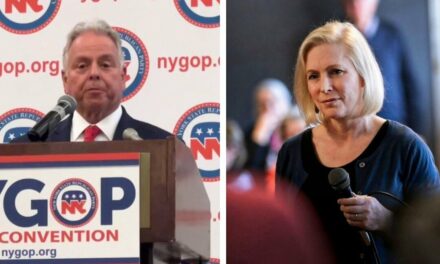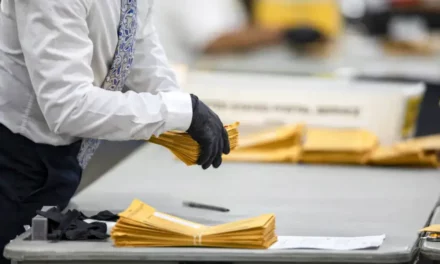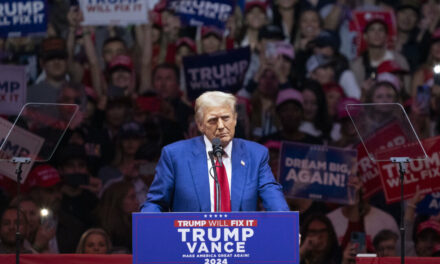A federal agency argued that allowing election betting undermines state laws banning gambling on elections and could erode public trust in democratic processes.
Robinhood has introduced U.S. presidential election event contracts, allowing retail investors to place bets on the results of the 2024 race for the White House that pits Vice President Kamala Harris against Republican candidate Donald Trump.
The move,
announced on Oct. 28, marks Robinhood’s foray into event contracts, a type of derivative that’s regulated by the Commodity Futures Trading Commission (CFTC), which classifies the contracts as a type of swap. The regulator is engaged in an
ongoing legal battle to block trading platform Kalshi from offering similar contracts, which could have implications for Robinhood’s newest offering if the CFTC prevails with its appeal.
Robinhood rolled out its presidential election event contract
platform on Monday through Robinhood Derivatives LLC (RDH), which began offering the opportunity to bet on the outcome of the presidential contest between Harris and Trump to a limited number of U.S. citizens who meet specific eligibility requirements. These include verifying U.S. residency and attesting to not being directly affiliated with a political campaign, major polling organization, or related entity.
There will be two contracts investors can choose from, which are based on a “yes” or “no” answer to what’s known as the event question, which is either whether Harris or Trump will win the 2024 presidential election. The payout for a given contract is either $1 or zero based on which of the two candidates is certified president on Jan. 7, 2025.
“Will Kamala Harris or Donald Trump win the 2024 presidential election? Get $1 for every contract you own if your candidate is certified in January—and nothing if they aren’t. Or close your position before Jan. 6, 2025,” reads an
explanatory note on the RDH website. “This is a market, not voting.”
The rollout of Robinhood’s election contracts follows a series of regulatory and legal developments in the election betting space.
In September, a federal judge
ruled in favor of allowing Americans to bet on the outcome of elections in a regulated marketplace, marking a setback for the CFTC, which had attempted to block such trading. An appeals court
upheld the decision at the beginning of October, rejecting an emergency motion for a stay pending appeal requested by the CFTC in its ongoing litigation against derivatives platform Kalshi. The appeals court’s decision temporarily cleared the way for platforms like Kalshi and Robinhood to offer election results-based derivatives contracts, though this could change as the CFTC’s appeal of the decision remains ongoing.
In an Oct. 16
filing that seeks a reversal of the lower court’s decision, the CFTC argued that allowing election event contracts undermines state laws prohibiting gambling on elections and could erode public trust in democratic processes. The agency contended that such contracts qualify as “gaming” under the Commodity Exchange Act (CEA) rather than contracts that have a “hedging or economic use,” and that betting on elections is against the public interest.
Better Markets, a nonprofit that promotes public interest in financial markets, on Oct. 23 filed an
amicus brief in support of the CFTC as the agency pursues a court order that would prevent Kalshi from offering election results contracts, which could have implications for Robinhood and other platforms looking to offer similar derivatives.
“It’s vital that the D.C. Circuit restore the CFTC’s decision to prohibit gambling on elections,” Stephen Hall, legal director at Better Markets, said in an Oct. 24
statement. “Kalshi’s contracts are allowing large-scale wagers on an ever-increasing number of election contests across the country. This will inevitably undermine the integrity of those elections, foster rampant market manipulation, and victimize countless investors with the help of AI and digital engagement practices.”
“We’ll watch and hope that the appellate court reverses the lower court’s decision and closes the lid on Pandora’s box,” Hall said.
It’s unclear how the appeals court will rule. In its Oct. 2 decision denying the CFTC’s emergency request to block the contracts, the court acknowledged that the concerns raised by the regulator are “understandable” given the potential impact of the contracts on election integrity, which the court described as “the very linchpin of our democracy.”
However, the court found that the statutory text that allows the CFTC to bar such event contracts is “debatable” and that the agency had failed to prove that the risks to election integrity would materialize if Kalshi, and others, are allowed to offer election bets while the appeal plays out.

 Conservative
Conservative  Search
Search Trending
Trending Current News
Current News 







